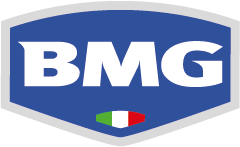Five scooter brands you should check out
With many global cities experiencing rising congestion from cars and the higher pollution levels caused by this, along with unreliable and expensive public transport, you might be considering other ways to get around. Scooters are a good alternative, being small and maneuverable enough to beat the traffic.
To get you started, here are five scooter brands you should check out.
1. Vespa
Vespa, meaning ‘wasp’ in Italian, is arguably the most famous scooter brand in the world. Founded in 1946 in Florence, Italy, the Vespa has a fashionable, lightweight design popular with scooter enthusiasts all over the world. From being ridden by Audrey Hepburn in the 1953 film Roman Holiday to being adopted by English mod culture, the Vespa remains a style icon. An innovator in green scooters, Vespa’s first electric scooter, the Vespa Elettrica, was released in early 2019.
When buying a scooter, make sure you visit reputable scooter showrooms, such as BMG scooters Richmond, where you can get more information on which scooter is perfect for your lifestyle.
2. Piaggio
Piaggio is one of the world’s oldest and largest scooter manufacturers and creators of the Vespa. Founded in Italy in 1884, the company initially manufactured locomotives and railway carriages, before turning to motorcycles at the end of the First World War, aiming to produce an affordable mass-produced mode of transport. Today, Piaggio is leading the way in producing hybrid electric scooters, such as the Vespa Elettrica.
3. Suzuki
Suzuki is well-known as a legendary car and motorbike manufacturer, but if you would prefer something smaller, you cannot go wrong with one of their scooters. The company was founded by Michio Suzuki in 1909, producing weaving looms for Japan’s silk industry. Despite the massive success of the weaving looms, Suzuki diversified into cars in 1937 but reverted to looms during the Second World War. Suzuki’s loom production would have continued indefinitely had the 1951 cotton market collapse forced the company to again switch to motor vehicles.
